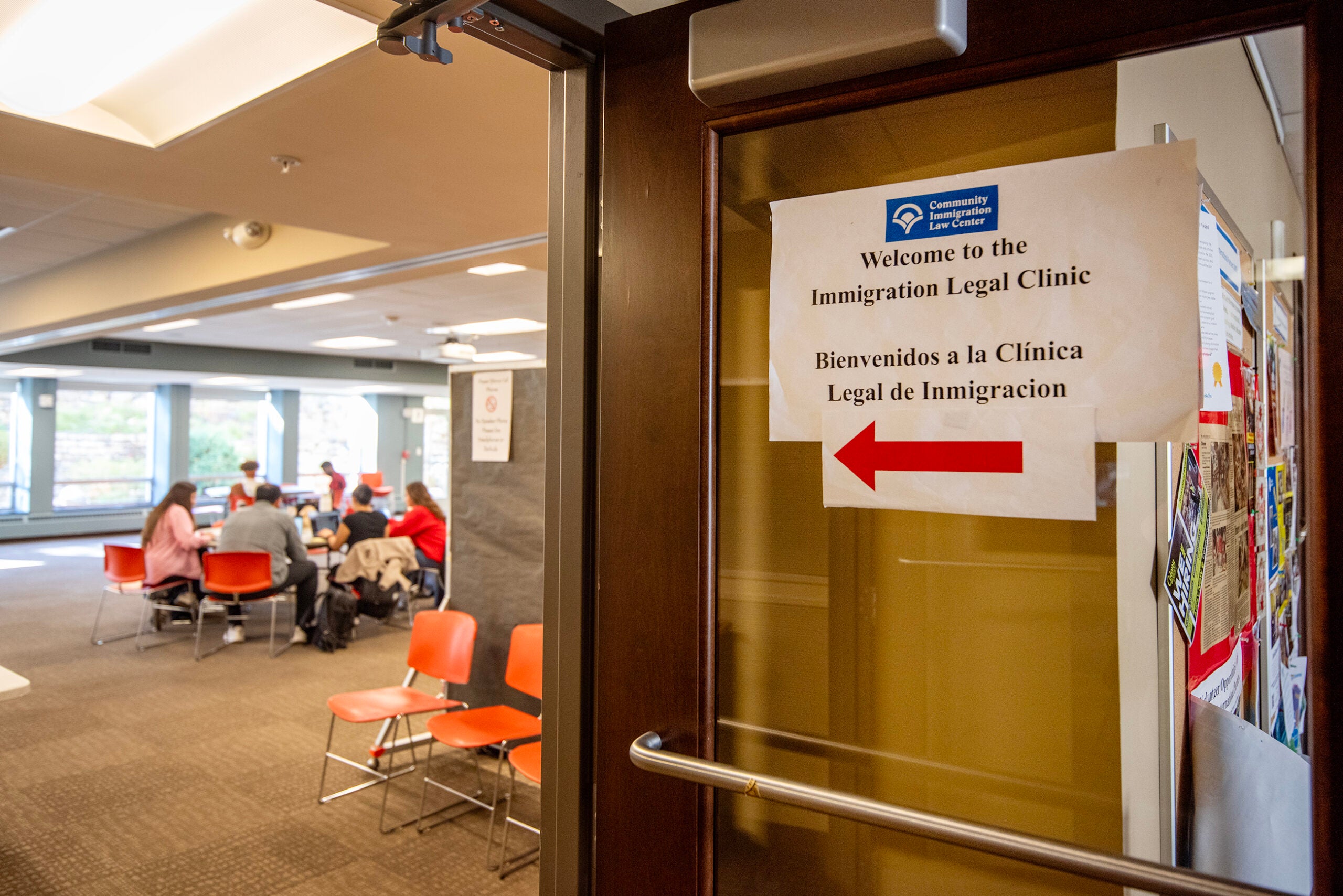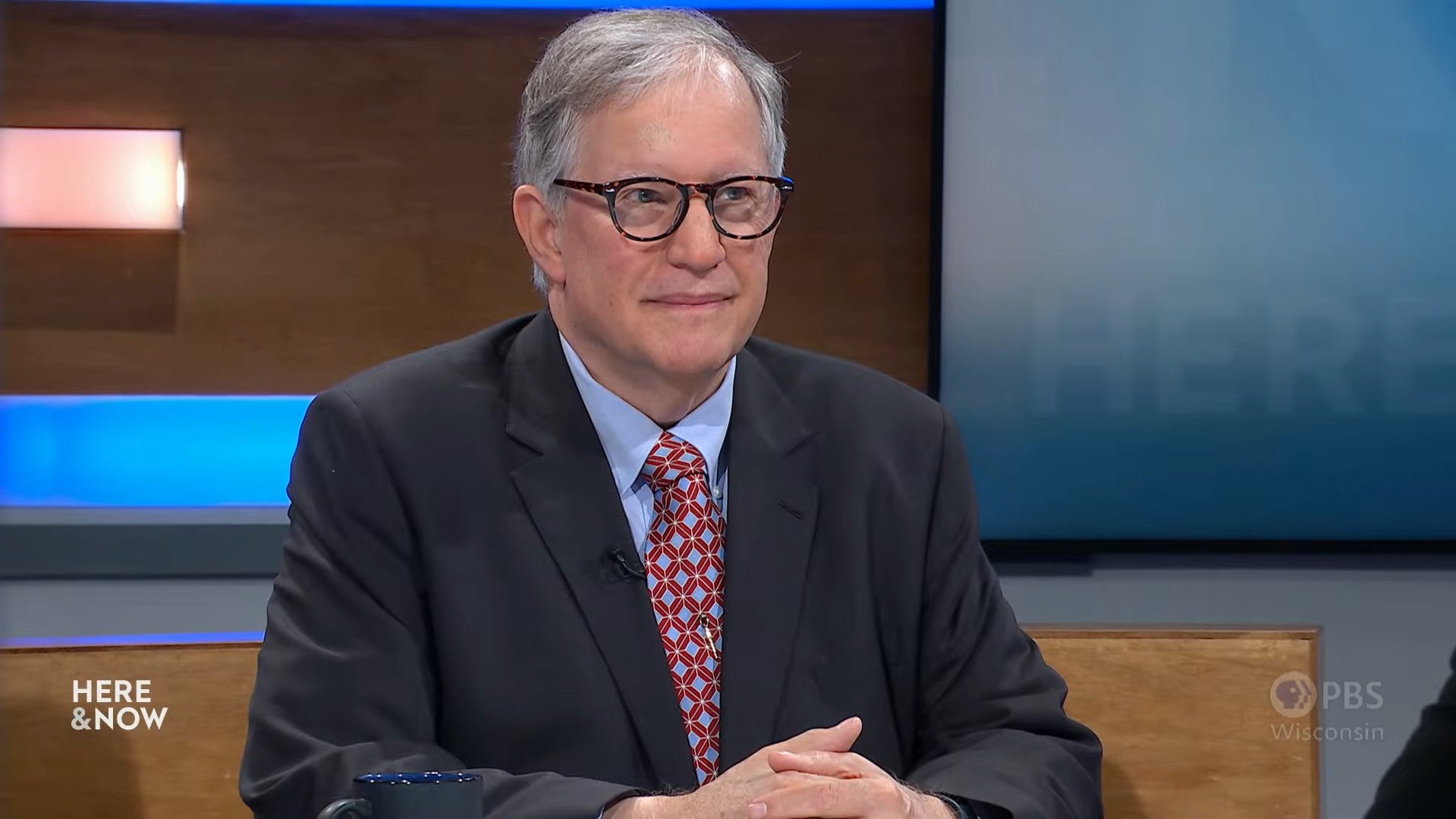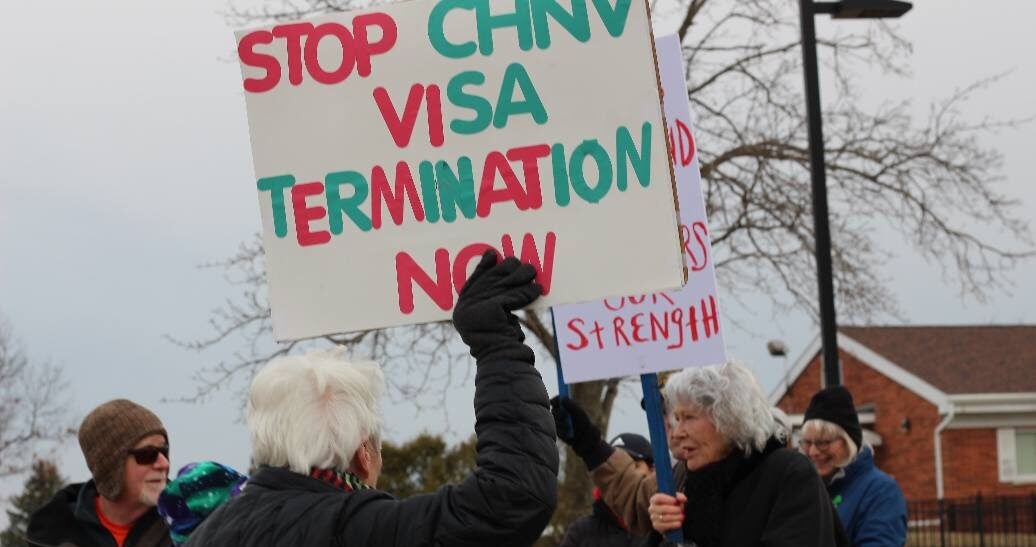As Republicans, including former President Donald Trump, continue to hammer President Joe Biden on immigration and border security, new polling from the Marquette University Law School shows it may be resonating with more voters.
Since 2012, Marquette has asked voters whether “undocumented immigrants who are currently working in the U.S.” should be allowed to stay and pursue citizenship, stay on a temporary basis, or be required to leave their jobs and leave the U.S.
New survey results released Wednesday show the percentage of Wisconsinites who feel those immigrants should have to leave their jobs and the country has nearly doubled in just the past two years, hitting 30 percent for the first time.
News with a little more humanity
WPR’s “Wisconsin Today” newsletter keeps you connected to the state you love without feeling overwhelmed. No paywall. No agenda. No corporate filter.
A majority of respondents, 49 percent, said those same immigrants should be allowed to stay in the country and apply for U.S. Citizenship. Still, that tied an all-time low for the survey, and was down from 64 percent in 2022.
“Well, the political rhetoric has changed this year, with Donald Trump’s simple statement that he would like to deport all immigrants in the U.S. illegally,” Marquette pollster Charles Franklin said about the results Wednesday. “And he’s talked extensively about that in his campaign rallies.”
During his first rally in Wisconsin since 2022, Trump told supporters in Green Bay earlier this month that Biden’s border policies have allowed “an invasion of our countries” that is “bigger than a war.” If elected, Trump said he would lead “the largest deportation in American history.”
Franklin said that led his team to ask Wisconsin voters a new immigration question: whether they would favor or oppose the deportation of immigrants in the U.S. illegally without offering any qualifiers. Among respondents, 56 percent favored deportation and 39 percent were opposed.
Franklin called immigration “a pretty potent issue” from a political point of view.
“But it also means how this issue is framed and who are you thinking about when you’re thinking about making people leave the country really is a pregnant political issue,” Franklin said.
Trump messaging on immigration similar to 2016
University of Wisconsin-Madison Political Science Professor Ben Marquez said the latest rhetoric around immigration is an example of “the politics of racial resentment,” which he said has always been part of American immigration policy.
Marquez said with inflation driving up costs for things like groceries, and an influx of Latinos coming into Wisconsin from Mexico, Central and South America, Trump was able to use people of color entering the U.S. as a scapegoat during his first run in 2016 and is doing it again.
“He hit that formula very well, you know, people suffering economic distress and blaming people of color from a different country speaking a different language and having a different culture,” Marquez said. “So, that’s a situation we find ourselves in today.”
The bad news for Democrats, he said, is a majority of Americans see Trump as more competent in handling the economy than Biden.
“That is serious, and the promise of something changing for the better is an important appeal,” Marquez said. “And so, those three things — rent, food, fuel — those are make or break items for many, many, many people in the state of Wisconsin.”
Marquette’s April poll found immigration and border security was the number two issue among all voters, behind the economy. That was predominantly driven by Republican and independent voters.
At a national level, immigration has surged to the top of the list of what Americans feel is the most important problem facing the U.S., according to a Gallup poll released in February. It showed 28 percent of those surveyed felt immigration was the top challenge facing the country, which represents an 8 percent jump compared to results from the prior month.
American’s listed the government as the second most important problem facing the nation, but the margin was largely unchanged from January.
Wisconsin Public Radio, © Copyright 2025, Board of Regents of the University of Wisconsin System and Wisconsin Educational Communications Board.







